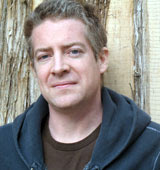- S/164
- S/90
- S/50
- S/13
- S/5
- S/164
- S/50
- S/90
- S/13
- S/5
There were four clusters that Lohafer used to classify the choices made in determining preclosure points. Clusters A, B, and C occur in the body of the story whereas Cluster D occurs at the end of the story right before the actual ending. Four of the five sentences I chose were located in the body of the story and one was located near the end. Lohafer describes two types of signals that a reader uses to determine a preclosure point and each of those signals can be broken down into two further sub-signals.
The following descriptions were taken from Lohafer's essay "Reading for Storyness: Preclosure Basics":
A. Retroactive signals, recognized only after one reads past them (27)
- sentence preceding paragraph breaks (next paragraph moves on to another place, time or topic)
- changes of space/time/condition (the end of action at a particular time and place which must be read past to realize that change took place)
B. Signals that "register within the preclosure sentence itself" (27-28)
- natural-event terminals (conventional ending, such as arrival following a journey, or departure following a visit)
- image recursions (the reappearence of an image, usually with some variation)
After I chose the sentences that I liked for preclosure points I then tried to lump them in one of the above categories. The results are as follows:
S/164 would have belonged under category A number 2. The sentence was, "That night it rained, and I listened to the rain on the roof and my mother sobbing, downstairs, until I fell asleep (Sher26)" I believe this would have been considered a change of space/time/condition because the boy fell asleep thus his condition changed from that of wakefullness to sleep. The finality of falling asleep signaled an end to me.
S/50 would have belonged under category A number 1 as well as category B number 1. "Only Wendy stayed by the well for a while, watching us run as his calling grew louder and wilder, until finally she ran, too, and then we were all far away," was the sentence (Sher22). It was at the end of the paragraph, which landed it in category A number 1, but it also consisted of Wendy's departure from the well landing it in category B number 1.
S/90 I believe would only fit into category A number 1. This is because it comes at the end of a paragraph, but does not have a change in the space/time/condition, nor does it have a natural-event terminal or image recursion. "She said, "they're going to come" to cover up the mistake, but there it was, and there was nothing to do about it (Sher24)."
S/13 "But along the way we slowed down, and then we stopped, and after waiting what seemed like a good while, we quietly came back to the well (Sher21)." This sentence seemed like it would fit in category A number 1 because it is at the end of a paragraph, category B number 1 because it had a natural-event terminal in the fact that they returned to the well as if they were journeying to it and finally it could have been category B number 2 because the image of the well recurs. The kids start at the well then come full circle back to it.
S/5 was harder for me to place. The sentence was as follows: "I don't remember if we told ourselves a reason why we couldn't help him, but we had decided then (Sher21)." I believe it could be placed in either category A number 2 or category B number 1 because the final decision signified a change in condition as well as a natural-event terminal.
Sentence 164 was a natural choice for the ending because it occured just before actual ending. By mentioning the rain and the fact that the boy layed awake thinking about it gave me the sense of closure to all plot points. One can naturally infer if we stopped the story there that the man was left in the well to drown. Sentence 5 was a farther fectched choice because it would have made it an extremely short story leaving much to be desired, but it could logically have come to an end with their decision not to help the man. End of story. No need to add filler. This was my least favorite choice because I wanted to figure out why the children did not help the man. Even with the natural ending I did not come to a complete conclusion on that front, but it did help me to understand a little better.


No comments:
Post a Comment